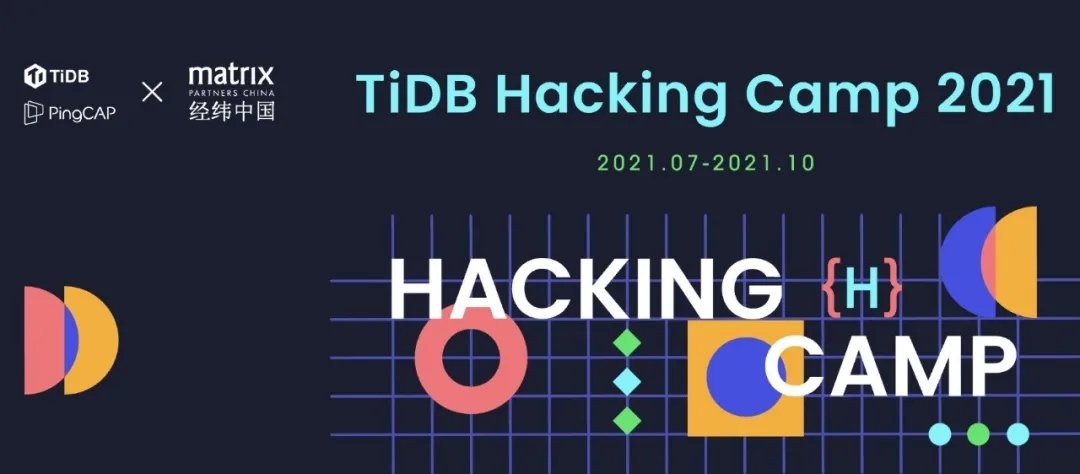
TiDB Hacking Camp is a long-term incubation event organized by PingCAP in cooperation with Jingwei China and co-organized with many partners. It is held 1-3 sessions every year. The event, in conjunction with TiDB's ecological partners and cooperative enterprises, aims to help the TiDB ecological project obtain more resources and help from the community, so that it can quickly grow to a mature stage with practical application scenarios.
This session of Hacking Camp is starting from 2021.07 to 2021.10. With the topic of ecology, PingCAP and senior R&D experts are invited to assist the project team in formulating a reasonable R&D plan and business direction, and jointly promote the implementation of the project.
As long as you are interested in distributed and open source and want to explore fun hard-core open source projects, then you must not miss this Hacking Camp! Here, you can:
- Improve open source collaboration experience
- Improve technical strength
- Watch an open source project born from scratch and get the pride of re-participating.
Welcome to join JuiceFS track
As the co-organizer of Hacking Camp, JuiceFS was also selected for this session of project incubation.
JuiceFS is a high-performance shared file system driven by object storage and database. It is mainly designed for large-scale data storage in the cloud and is widely used in scenarios such as big data, machine learning, Kubernetes, data archiving and backup.
When using JuiceFS to store data, the data itself will be divided into data blocks and stored in object storage according to specific rules, and the metadata corresponding to the data will be stored in an independent database, which are called metadata engine.
Currently, the metadata engines supported by JuiceFS mainly include Redis, MySQL/MariaDB, TiDB, PostgreSQL, and SQLite. Among them, the most widely used is Redis, which has the most excellent performance, but it has a high maintenance threshold and low reliability. JuiceFS plans to introduce a metadata engine with ideal performance and higher reliability.
TiKV is a distributed transactional key-value database that provides a distributed transaction interface that satisfies ACID constraints, and through Raft Protocol Ensures the consistency and high availability of multiple copies of data.
In this event, we plan to use TiKV as the next important metadata engine of JuiceFS, to solve the problem of insufficient reliability when using Redis, and to further cover a wider range of business scenarios.
We sincerely welcome everyone to join the JuiceFS open source community to discuss and implement new functions together! Guys who actively participate in community discussions and contributions will have the opportunity to get the following rewards. 👇
Award
Contributors have the opportunity to obtain:
- Hacking Camp T-shirt
The best contributor has the opportunity to get:
- A Hacking Camp Gift
- A JuiceFS Gift
How to participate?
Whether you are interested in the implementation of the TiKV metadata engine or other functions of JucieFS, you can participate in the development activities of the community.
You can follow the process below to collaborate with community users:
- Submit Issue: Describe the problem you found, the desired function or the idea of function implementation by Submit Issue on GitHub.
- Discussion: Everyone will discuss on the Issue you submitted and decide whether to implement it and who will implement it.
- Pull Request: When you implement the functions described in the Issue, you need to conduct further evaluation and discussion with community members through PR, and the approved PR will eventually be merged into the main branch.
You can also communicate with the JuiceFS project team through forum, Slack and other channels, so let's get started now!
- GitHub: https://github.com/juicedata/juicefs
- Forum: https://github.com/juicedata/juicefs/discussions
- Slack: https://juicefs.slack.com


















